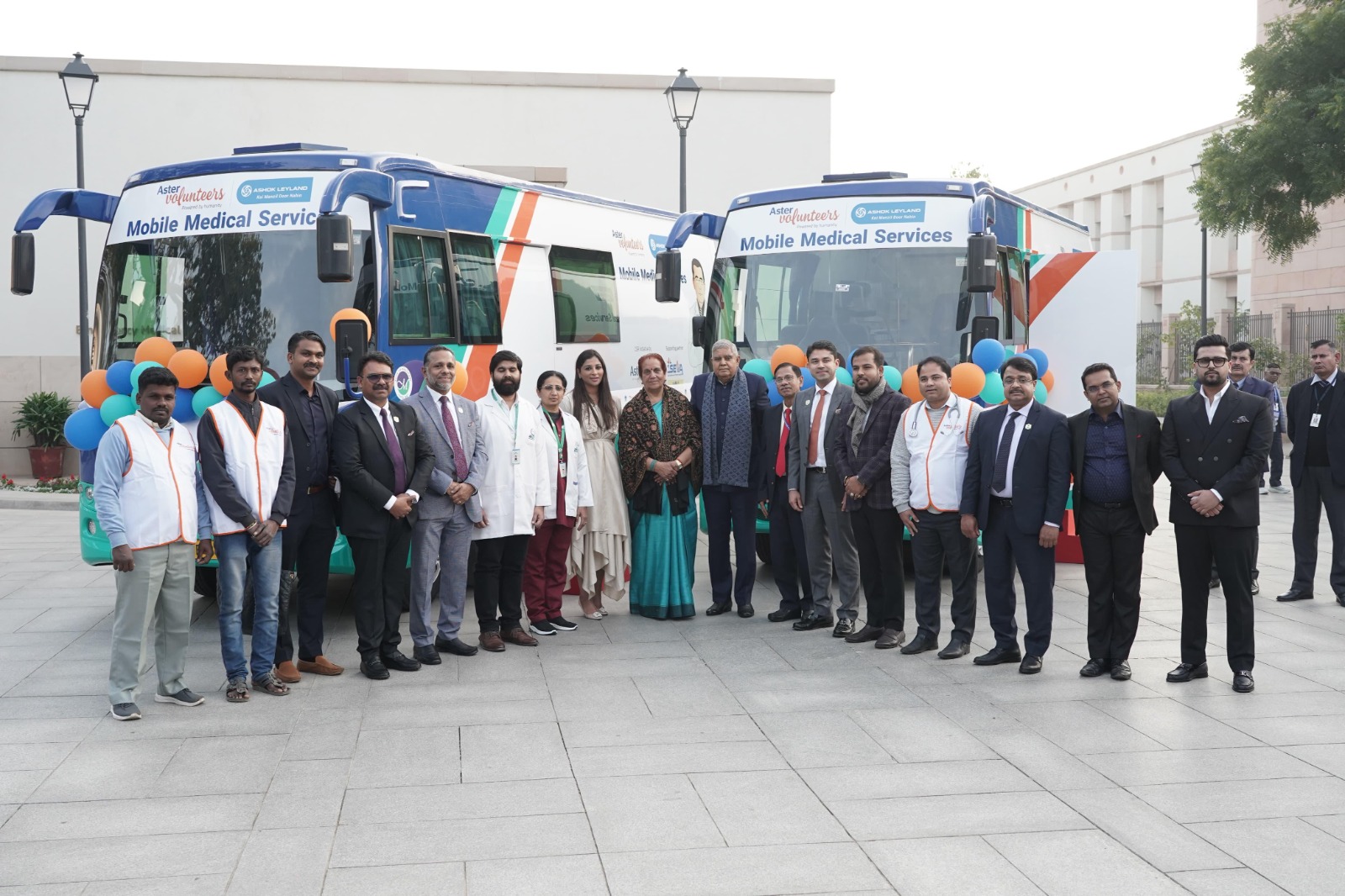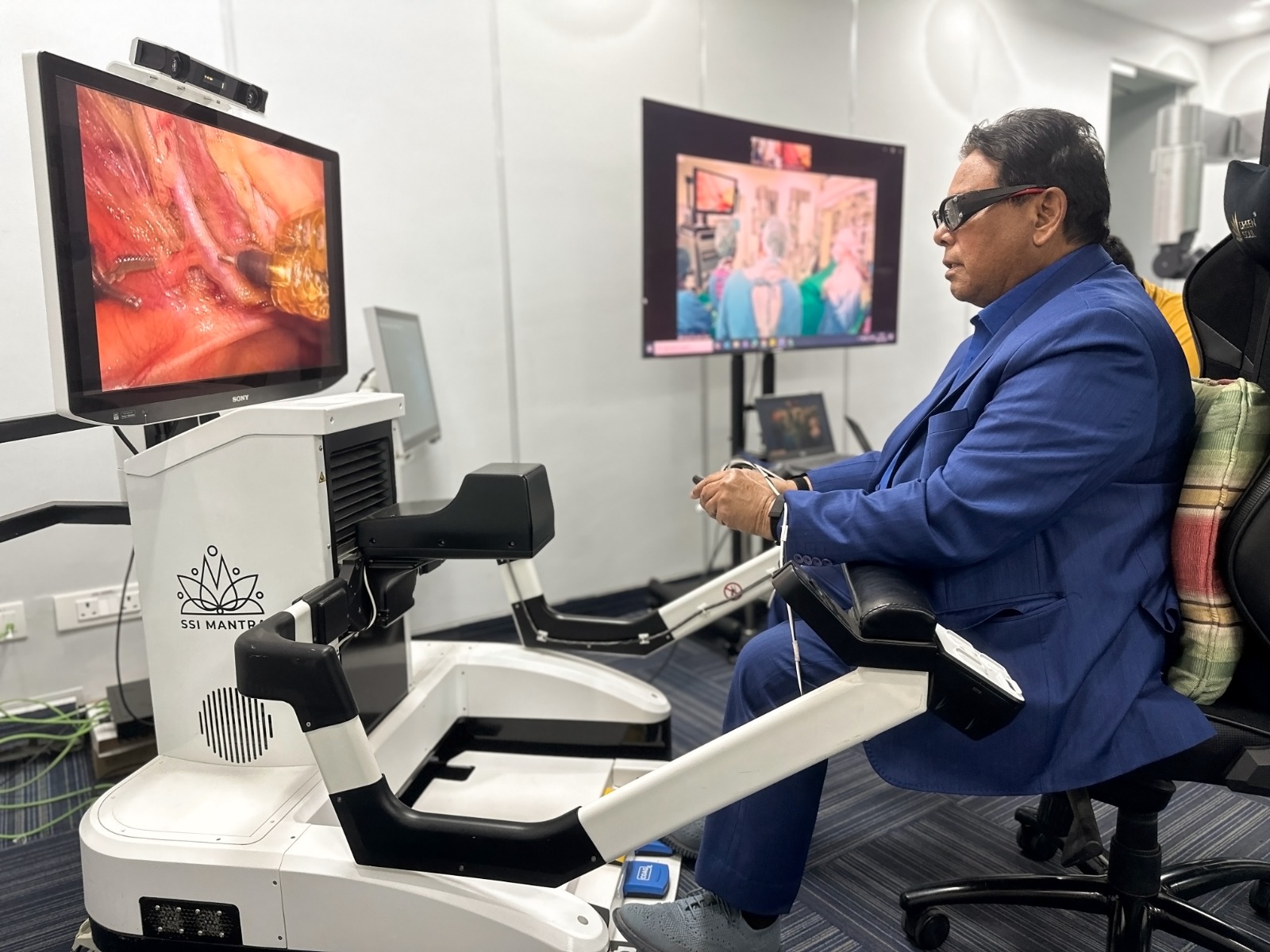 New Delhi: Given the huge burden of kidney diseases and hospitals lacking beds to accommodate them, kidney care at home is becoming the norm. Sir Ganga Ram Hospital launched Kidney Care at Home on the eve of World Kidney Day (March 14). In the mean time, a latest laboratory test survey done by SRL Diagnostics has shown higher percentage of abnormal kidney test results in Eastern States of India compared to other parts of India.
New Delhi: Given the huge burden of kidney diseases and hospitals lacking beds to accommodate them, kidney care at home is becoming the norm. Sir Ganga Ram Hospital launched Kidney Care at Home on the eve of World Kidney Day (March 14). In the mean time, a latest laboratory test survey done by SRL Diagnostics has shown higher percentage of abnormal kidney test results in Eastern States of India compared to other parts of India.
Under ‘Kidney Care at Home’ services, Institute of Renal Sciences of Sir Ganga Ram Hospital will provide various homecare services such as ambulatory blood pressure monitoring, continous holter monitoring, care of catheter, dressing, wound care, Home sampling and Home Haemodialysis. There will be dedicated staff to look after home peritoneal dialysis (CAPD & APD) and this APD machine will have software for monitoring therapy by Nephrologists.
 Dr. (Prof.) D.S. Rana, Chairperson (Department of Nephrology) & Chairman (Board of Management), Sir Ganga Ram Hospital, said, ‘ Since chronic kidney disease runs in families especially in patients with diabetes, hypertension & various other diseases, we will have a package under which patients families will be screened so that kidney disease can be detected at early stage. Many lives can be saved by doing the screening of families’.
Dr. (Prof.) D.S. Rana, Chairperson (Department of Nephrology) & Chairman (Board of Management), Sir Ganga Ram Hospital, said, ‘ Since chronic kidney disease runs in families especially in patients with diabetes, hypertension & various other diseases, we will have a package under which patients families will be screened so that kidney disease can be detected at early stage. Many lives can be saved by doing the screening of families’.
Another service launched on the occasion is addition of APHERSIS UNIT in the department of nephrology. This will have dedicated apharesis machines and will cater to various patients of ABO incompatible Kidney Transplant. Patients from various parts of country are referred for plasma pharesis and Sir Ganga Ram Hospital is the largest centre for doing ABO incompatible Kidney Transplant in India. With dedicated apharesis Unit, the procedure can be done in a clean & hygienic environment in the hospital.
Dr. (Prof.) A.K. Bhalla, Co-Chairperson & Director-Dialysis Unit (Department of Nephrology), Sir Ganga Ram Hospital, said, ‘We are amongst the pioneer to start ABO compatible organ transplants. Apart from many other diseases, dedicated APHERSIS further will boost the family of ABO compatible transplants’.
With increasing incidence of CKD, the number of patients undergoing dialysis in India is also increasing by 10 – 15 percent every year. This percentage includes many children as well. Unfortunately, despite its steadily increasing incidence, kidney disorders are still not a high priority condition in India. The condition is further worsened by a shortage of operational beds in hospitals and shortage of doctors and paramedics. The economic factor of treatment and management of CKDs is also a major concern for patients and their families.
 Dr. Gaurav Thukral, Critical Care expert and Chief Operating Officer at HealthCare atHOME (HCAH), says, ‘Studies have pegged the burden of chronic kidney diseases (CKD) in India at 800 per million people. It is a significant number considering our population. Treatment and management of CKDs is a long process made painful by long admissions to the hospitals – which leads to mental, physical and economical discomfort to patients and their families. Quality home healthcare solutions are striving to reduce this discomfort by providing a comprehensive health education plan, developing and executing a special care plan for CKD patients and ensuring patient adherence to a healthy lifestyle – all at the comfort of the patient’s home. Home healthcare solutions are a more convenient and cost-effective option for patients and their families as well. For instance, HCAH provides hospital quality peritoneal dialysis to patients at their homes at 30% lesser cost and also reduces stress of care givers by eliminating bi-weekly visits for patients to the hospital for dialysis. Home healthcare is indeed an immediate, cost effective, comfortable and high-quality solution to managing India’s CKD burden.’
Dr. Gaurav Thukral, Critical Care expert and Chief Operating Officer at HealthCare atHOME (HCAH), says, ‘Studies have pegged the burden of chronic kidney diseases (CKD) in India at 800 per million people. It is a significant number considering our population. Treatment and management of CKDs is a long process made painful by long admissions to the hospitals – which leads to mental, physical and economical discomfort to patients and their families. Quality home healthcare solutions are striving to reduce this discomfort by providing a comprehensive health education plan, developing and executing a special care plan for CKD patients and ensuring patient adherence to a healthy lifestyle – all at the comfort of the patient’s home. Home healthcare solutions are a more convenient and cost-effective option for patients and their families as well. For instance, HCAH provides hospital quality peritoneal dialysis to patients at their homes at 30% lesser cost and also reduces stress of care givers by eliminating bi-weekly visits for patients to the hospital for dialysis. Home healthcare is indeed an immediate, cost effective, comfortable and high-quality solution to managing India’s CKD burden.’
 In the meantime, people living in the Eastern states of India showed higher percentage of abnormal results in kidney related laboratory tests than that done in other parts of the country, a survey conducted by SRL Diagnostics revealed. The findings of the survey were gleaned from Kidney Function Test (KFT) conducted by the most doctor preferred diagnostics chain across the country between 2016 and 2018.
In the meantime, people living in the Eastern states of India showed higher percentage of abnormal results in kidney related laboratory tests than that done in other parts of the country, a survey conducted by SRL Diagnostics revealed. The findings of the survey were gleaned from Kidney Function Test (KFT) conducted by the most doctor preferred diagnostics chain across the country between 2016 and 2018.
The analysis was obtained by studying the correlation of Blood Urea Nitrogen (BUN) and Creatinine {BUN:Cr} and Uric Acid (UA) levels in individuals across India. Blood Urea Nitrogen is a waste product produced by the liver during processing of protein and is removed from the blood by the kidneys. Similarly, creatinine is a product from the normal breakdown of muscles in the body. The kidneys remove both BUN and creatinine from the blood. As kidneys start malfunctioning the levels of these markers go up in the blood. Similarly, recent medical research has shown that elevated levels of serum uric acid (UA) are a marker for decreased renal function and risk for developing chronic kidney disease, especially in diabetic and hypertensive individuals.
SRL’s survey revealed that abnormalities in kidney function (both BUN: Cr and UA levels) were highest in the Eastern States (16%) followed by Northern states (15%). Gender wise, abnormalities in kidney function (both BUN: Cr and UA levels), showed that kidney malfunction is more common in men than in women, with an average of 19% occurrence in men and 9% in women. Interestingly, Males had higher abnormal values (33%) for either BUN:Cr or UA compared to women (16%). The results of the survey were released on the occasion of World Kidney Day.
Commenting on the findings, Dr B.R Das, Advisor and Mentor – R&D and Molecular Pathology, SRL Diagnostics said, ‘Traditionally, health programs for prevention of chronic diseases focus on hypertension, diabetes mellitus and cardiovascular diseases. However, the increase in the prevalence of chronic kidney disease (CKD) progressing to end-stage renal disease (ESRD) and the consequent financial burden of dialysis and kidney transplants among other treatments, is steadily raising its head in India. As a country, we need to be mindful of these kinds of findings and ensure that proper preventive measures are taken in time before it becomes a life-long burden to manage.’
In India, WHO had projected that the number of deaths due to chronic diseases would rise from 3.78 million in 1990 (40.4% of all deaths) to 7.63 million in 2020 (66.7% of all deaths). Chronic Kidney Disease (CKD) is a non-communicable disease that affects 1 in 10 people worldwide.
SRL analysis further postulated that on an average of 10% of the overall population pre-renal abnormality, 68% had normal or post-renal conditions while 22% had renal abnormalities. Gender wise, as many 14% of females showed possible occurrence of pre-renal conditions compared to 7% of males.









